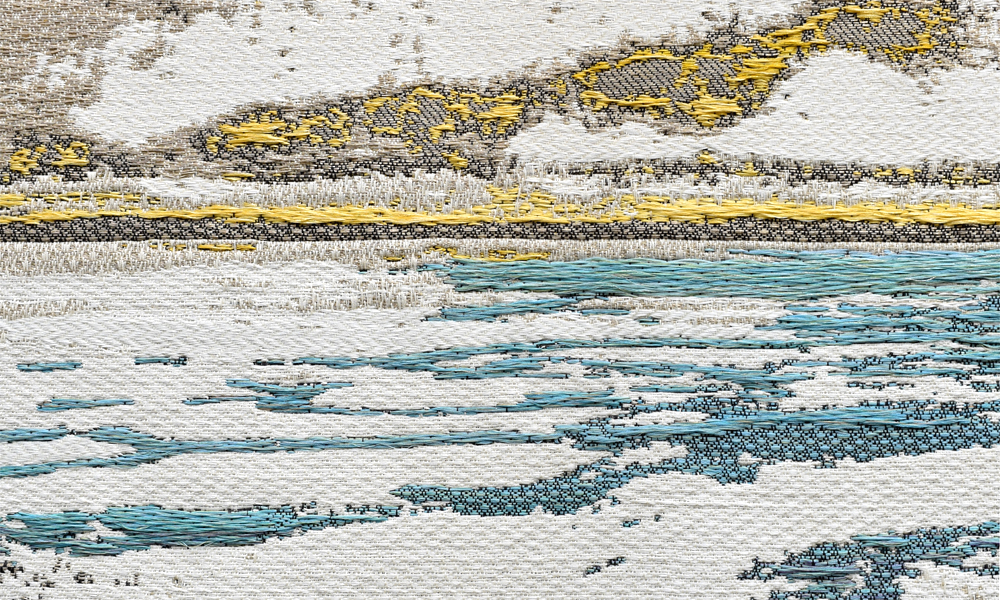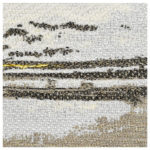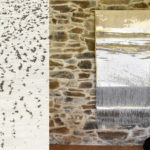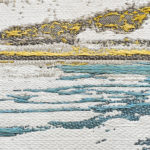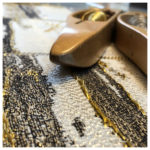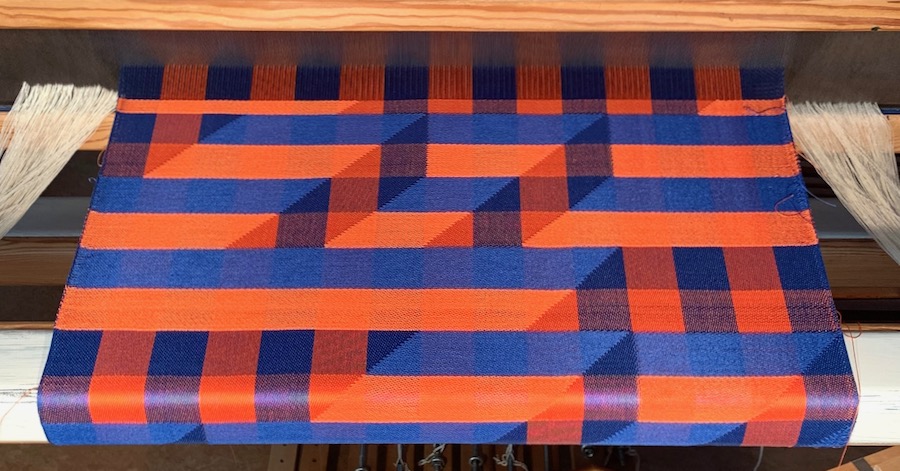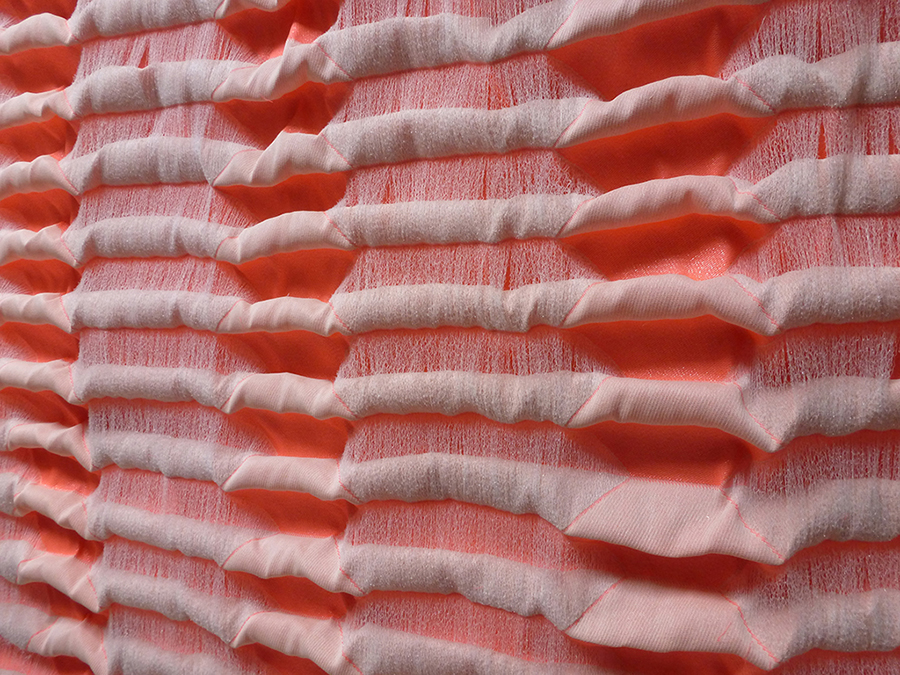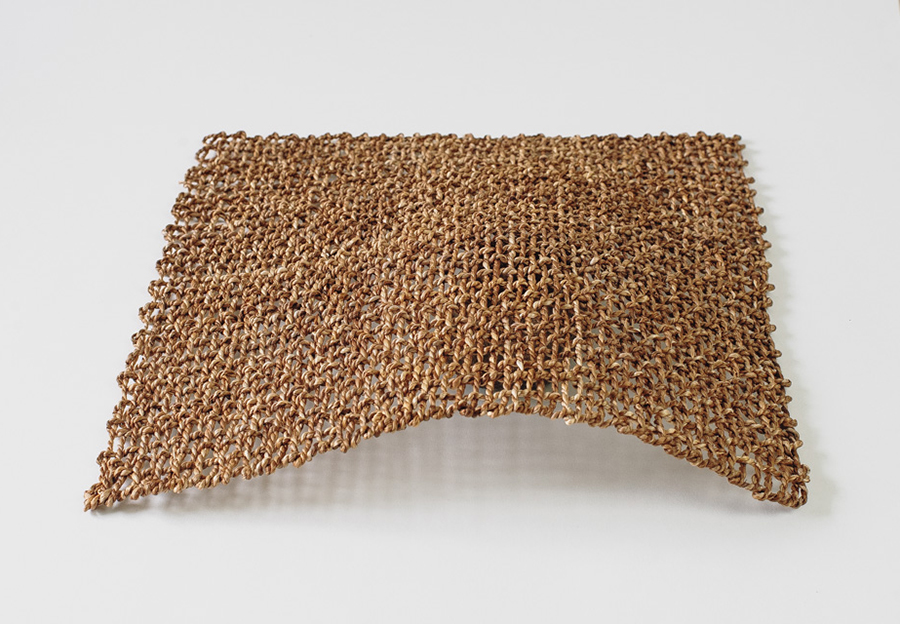Fresh from London Craft Week…
‘The Cornish landscape always evokes an emotional response in me. The sun dazzling off the water, the splash of the sea, the salty breeze on my face, the call of the gulls. In ‘Scapes’, I’m responding to these sensations, escaping into my imagination, conjuring a landscape’.
 Fiona J Sperryn’s recent body of work has been developed on the TC2 digital jacquard loom from her original mark-making. The creative journey started with dirty charcoal drawing outdoors, using local materials and responding to the essence of landscapes visited and imagined.
Fiona J Sperryn’s recent body of work has been developed on the TC2 digital jacquard loom from her original mark-making. The creative journey started with dirty charcoal drawing outdoors, using local materials and responding to the essence of landscapes visited and imagined.
This was followed by photography and scanning, a clean digital translation into the coded files recognised by the loom. Bobbins were wound with multiple strands of colour and the pieces were handwoven, indigo dip-dyed and painted once off the loom.
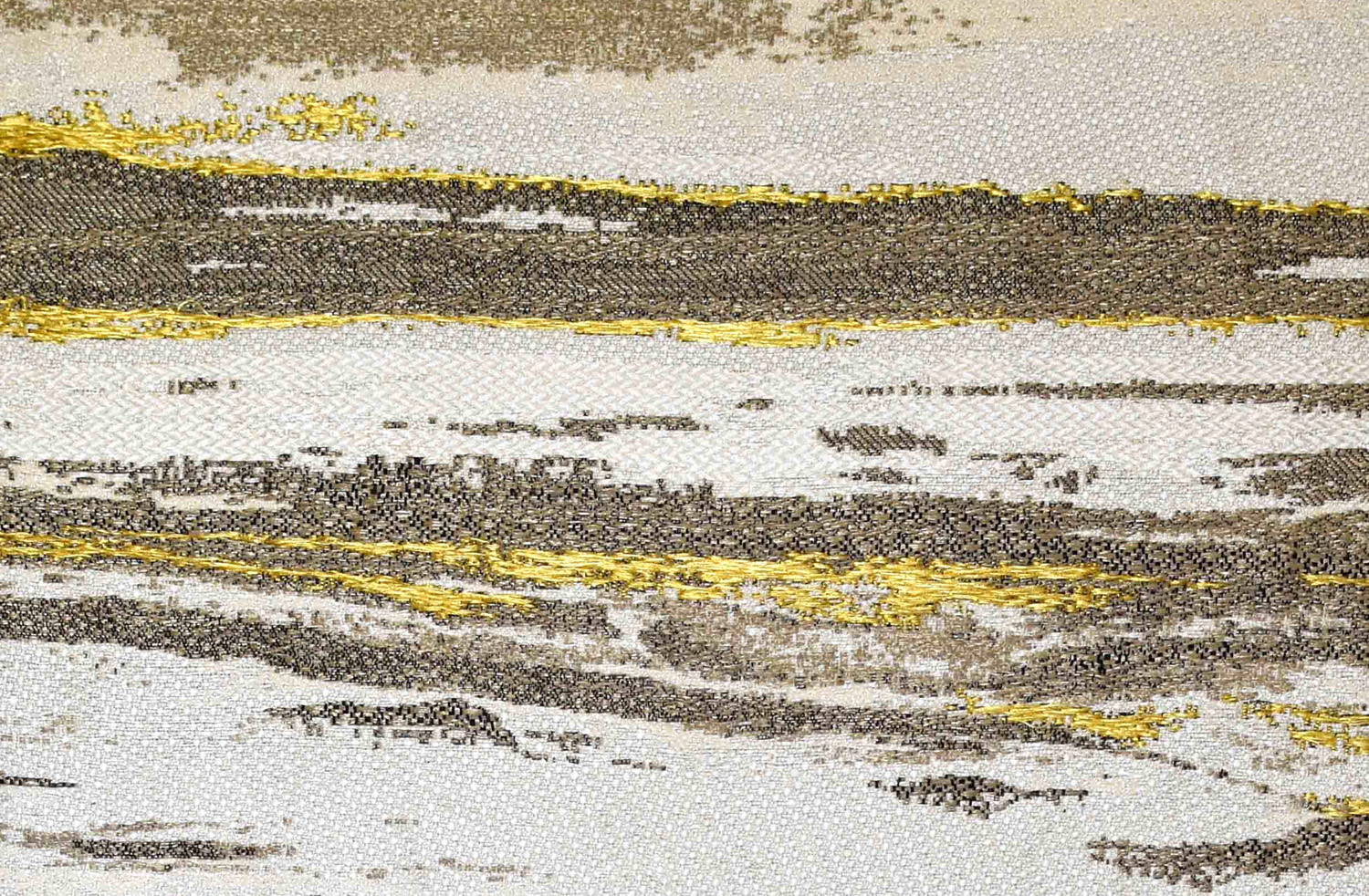 The largest hanging in the ‘Scapes’ series measures 76 x 170cm and the smallest pieces 18 x 15cm within 28cm frames made of recycled ‘Polcore’. Continuing Fiona’s work with colour blending on the loom in this series, strands of yarn of varying thicknesses are used together with subtle grading of tone and colour as each piece progresses.
The largest hanging in the ‘Scapes’ series measures 76 x 170cm and the smallest pieces 18 x 15cm within 28cm frames made of recycled ‘Polcore’. Continuing Fiona’s work with colour blending on the loom in this series, strands of yarn of varying thicknesses are used together with subtle grading of tone and colour as each piece progresses.
The artworks are handwoven using mainly industrial ‘deadstock’ yarns, which include tencel, linen, bamboo, rayon, silk and cotton. It is important to Fiona to limit purchase of new yarn and the creation of waste.
The series was recently exhibited as part of London Craft Week with Future Icons Selects at the Oxo Tower Bargehouse alongside 70 artists and makers, including a number of tapestry and hand weavers.
Fiona hand weaves her artwork in a rural studio in Cornwall and is an active member of Design-Nation. She produces woven pieces to commission for artists and designers.
Fiona additionally offers expert tuition in digital jacquard weaving on the TC2 loom in her studio and is a lecturer at Falmouth University.
Contact: Fiona J Sperryn
IG: @fionajsperryn
FB: Fiona J Sperryn Art
With thanks to Fiona for the text and images

